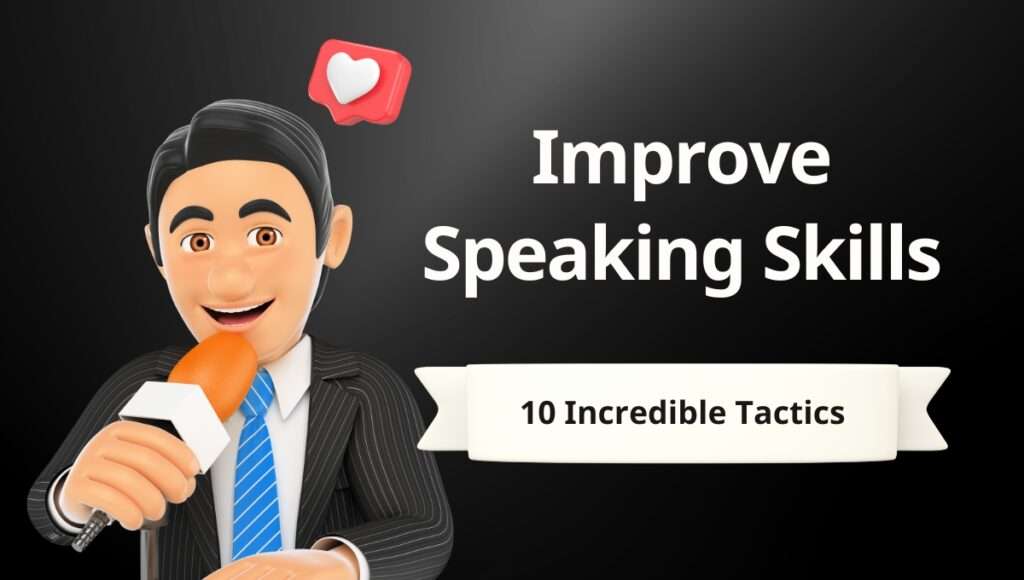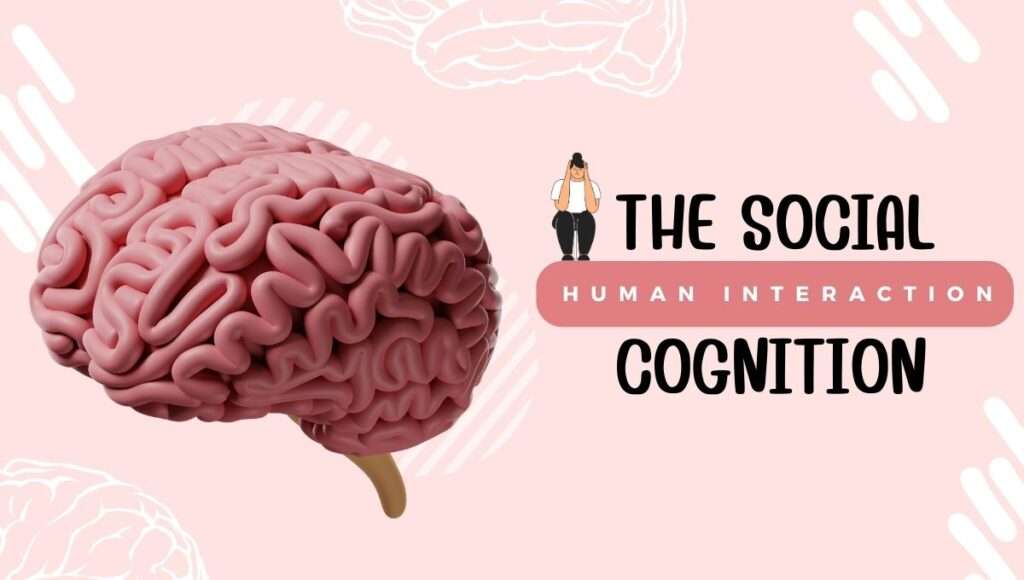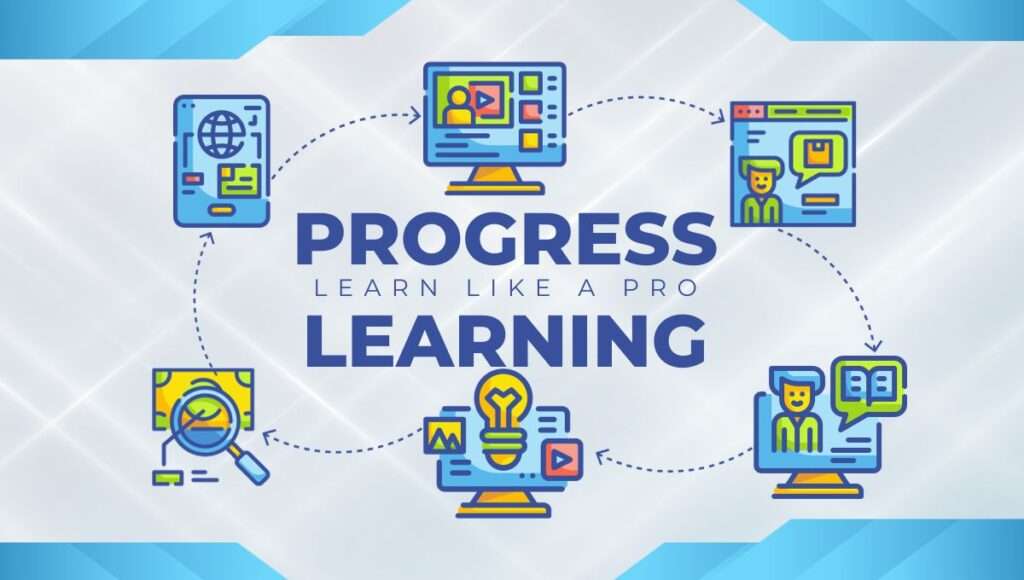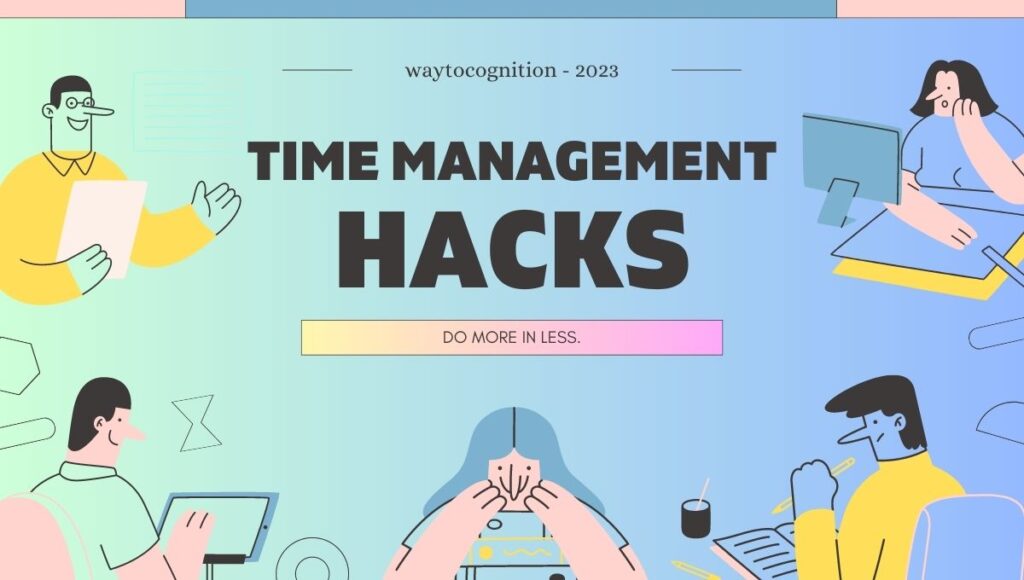Why Do We Make Bad Decision? 5 Surprising Reasons Revealed
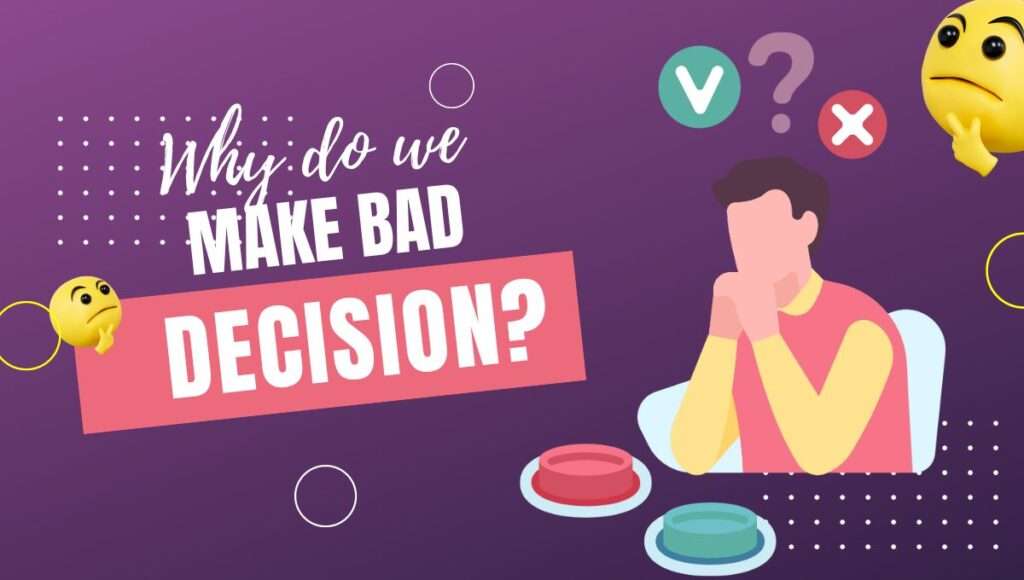
Life’s full of decisions. From choosing between that boring salad 🥗 and the mouth-watering pizza 🍕, to deciding whether to binge-watch another episode or, you know, actually get some work done. But ever wonder why sometimes we make choices that even a potato would question? 🥔 Let’s dive into the rabbit hole of our sometimes making hilariously flawed and bad decision.
The Complexity of Human Decision-Making
So, here’s the tea ☕: Our brains, as sophisticated as they are, can sometimes have the decision-making capacity of a squirrel in the middle of traffic. We think we’re all logical and stuff but in reality? Emotions, past traumas (like that time I wore socks with sandals in public 🤦), and societal pressures often steer the ship.
Now, imagine life as a game show. You’re presented with two doors 🚪. Behind one is a logical, well-thought-out decision. Behind the other? Spontaneous chaos. Guess which one our brain often picks? Yep, chaos. Why not? 🤷
You see, decision-making isn’t just a straightforward process. It’s not like following a recipe where you add a pinch of logic, a dash of emotion, stir well, and voilà – a perfect decision is served! 🍲 No, it’s more like trying to bake a cake in a malfunctioning oven while juggling eggs. 🥚🔥
Our brain is constantly bombarded with information. From the external environment, past experiences, societal expectations, and that annoying little voice inside that keeps reminding you of that embarrassing thing you did ten years ago. All these factors converge, often leading to a cacophony of thoughts that influence our choices.
Now, add to this mix our emotions. Ever tried thinking straight when you’re on an emotional roller-coaster? 🎢 It’s like trying to read a book during an earthquake. Emotions, especially intense ones, have this sneaky ability to hijack our rational thinking. One minute you’re calmly weighing the pros and cons, and the next, you’re impulsively buying a llama online because, well, why not? 🦙
And then there’s the societal pressure. Oh boy! The ever-present, often judgmental gaze of society, pushes us to conform, to fit in, to not stand out. It’s like that overbearing relative at family gatherings who keeps asking when you’re getting married or having kids. 🙄
In essence, human decision-making is a complex dance 💃, a delicate balance between logic and emotion, between the individual and the collective. And while it’s not always perfect, it’s this very imperfection, this unpredictability, that makes us, well, human.
Now let’s get to the main course the reasons why we make bad decision
Reasons
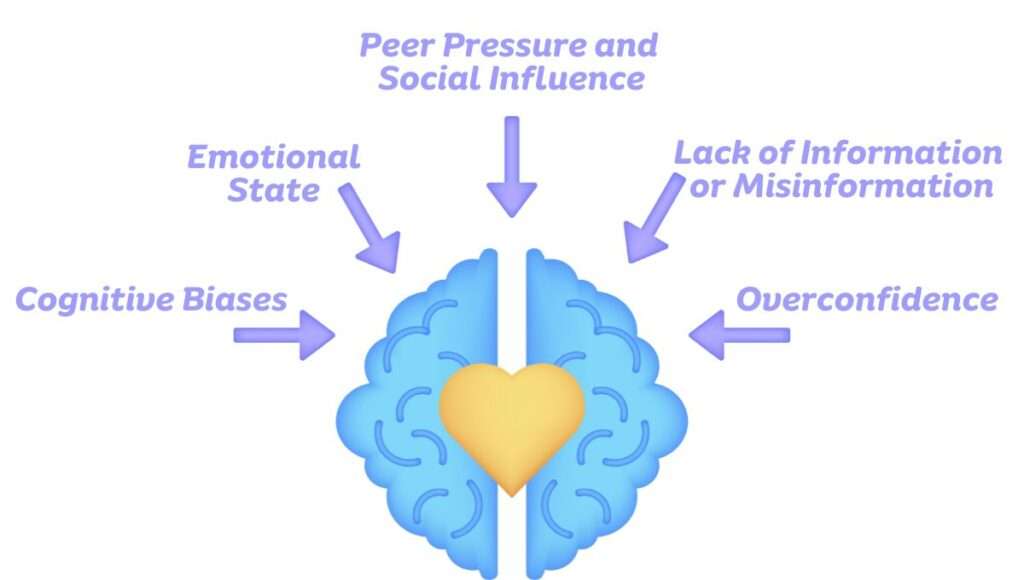
Reason 1: Cognitive Biases
Ever thought you’re the most rational person in the room, only to later discover that your brain has been playing tricks on you? Welcome to the world of cognitive biases! 🎪
Cognitive biases are like those sneaky little gremlins that mess with our perception, memory, and reasoning. They’re the reason we sometimes think our ex was perfect (rose-tinted glasses, anyone? 🌹) or why we’re convinced that every rustle in the bushes is a serial killer (thanks, horror movies 🎬).
For instance, there’s the infamous “confirmation bias.” It’s like having a selective hearing in your brain. You only pick up on information that confirms what you already believe and conveniently ignore anything that challenges it. It’s the mental equivalent of plugging your ears and singing “la la la” 🙉.
Reason 2: Emotional State
Ah, emotions. Those pesky little things that can turn our world upside down in a heartbeat. 💓 Ever made a decision when you’re so elated you feel like you’re walking on clouds? Or so down that even a tub of ice cream doesn’t help? 🍦
Our emotional state is like the weather for our decision-making. On sunny days, everything seems clear and straightforward. But throw in a storm of anger, sadness, or anxiety, and suddenly, it’s like navigating through a fog. 🌫
I once decided to cut my own hair after a particularly bad day. Let’s just say, hats became my best friend for a while. 🎩 The point is, when emotions run high, logic often takes a backseat, leading to decisions that might seem… questionable at best.
Reason 3: Peer Pressure and Social Influence
Remember high school? When fitting in was the “be-all and end-all” of existence? 🏫 Well, guess what? Even as adults, we’re not entirely immune to the siren call of peer pressure. It’s like that one catchy song you claim to hate but secretly hum in the shower. 🚿
We humans are social creatures. We crave acceptance, validation, and that warm fuzzy feeling of belonging. But sometimes, this need pushes us to make decisions that are, well, not exactly in our best interest. Like getting that regrettable tattoo on a dare or buying those neon green pants because they’re “in fashion.” 🤷♂️
Reason 4: Lack of Information or Misinformation
In the age of the internet, where information is just a click away, you’d think we’d all be super-informed, right? Wrong! 🚫 Sometimes, it’s like trying to find a needle in a haystack, and other times, we’re drowning in a sea of misinformation. 🌊
Ever shared a “fact” only to later discover it was as real as unicorns? 🦄 Yep, been there, done that. The problem is, when we base our decisions on half-truths or outright lies, the outcomes can range from mildly embarrassing to downright disastrous.
Reason 5: Overconfidence
Ah, overconfidence, the sneaky cousin of self-assurance. It’s like thinking you’re the next MasterChef after successfully making instant noodles. 🍜 While confidence is great, overestimating our abilities can lead us down a path of bad decision. It’s like trying to fly without wings – spoiler alert: gravity always wins. 🕊️
The Aftermath of Bad Decisions

So, you’ve made a questionable choice. Maybe you decided to binge-watch that new series until 4 AM on a workday, or perhaps you thought eating that suspiciously old sushi was a good idea. 🍣 We’ve all been there. But what happens next?
The ripple effect of our decisions can be fascinating. One seemingly small choice can set off a chain reaction, leading to outcomes we never even imagined. It’s like dropping a pebble in a pond and watching the ripples spread out. 🌊
I once decided to “fix” my computer by myself. Long story short, I ended up in a tech store, sheepishly handing over a machine that looked like it had seen better days. The technician’s raised eyebrow said it all. 🤨 But from that experience, I learned the value of seeking expert advice and not overestimating my tech skills.
Tips to Improve Decision-Making Skills
Alright, so we’ve established that our decision-making can sometimes be a hot mess. But fear not! There’s hope for us yet. 🌟
- Self-awareness: Recognize your biases and emotional triggers. It’s the first step to not letting them control you.
- Research: Before making a decision, especially a big one, do your homework. And no, a quick Google search doesn’t always count. 🧐
- Seek advice: Talk to people. Get different perspectives. But remember, at the end of the day, the decision is yours.
Bad Decisions in History: 8 Lessons We Can Learn Today
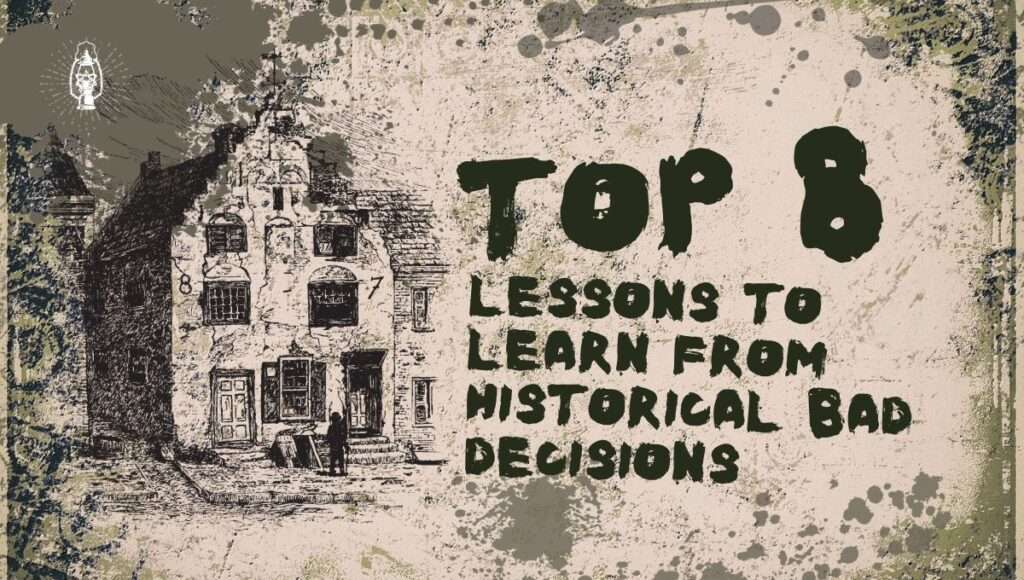
History is not just a collection of dates and dusty old facts; it’s a treasure trove of stories, some of triumph and others of… well, let’s just say not-so-stellar moments. 🤦♂️ Bad decisions have shaped the course of history in ways we can’t even fathom. But instead of just facepalming at these historical blunders, let’s uncover the lessons they offer for us today.
1. The Sinking of the Titanic
The “unsinkable” ship that, well, sank. Overconfidence and ignoring warnings led to one of the most infamous maritime disasters. Lesson? Always be prepared for the worst, and never underestimate potential risks. 🚢
2. Napoleon’s Invasion of Russia
Napoleon, in his ambition, decided to invade Russia in winter. The result? A catastrophic retreat. The lesson here is clear: Know your limits and understand the conditions you’re venturing into. ❄️
In 1867, Russia sold Alaska to the USA for a mere $7.2 million. Today, it’s a land rich in resources. This bad decision teaches us the value of long-term thinking over short-term gains. 💰
4. The Destruction of the Library of Alexandria
One of the ancient world’s largest libraries was lost, taking with it countless texts and knowledge. The lesson? Preserve knowledge and culture; they’re invaluable. 📚
5. The Fall of the Berlin Wall
While this event was a turning point for the better, the decisions leading up to it, including the division of Berlin, were fraught with tension and conflict. Lesson? Walls, whether physical or metaphorical, rarely solve problems. 🧱
A series of bad decisions led to the world’s worst nuclear disaster. The takeaway? Always prioritize safety and be transparent in communication. ☢️
7. The Trojans Accepting the Wooden Horse
A classic tale of deception. The Trojans accepted a wooden horse, leading to their downfall. The lesson? Always be wary of gifts that seem too good to be true. 🐴
In an attempt to revamp its image, Coca-Cola introduced “New Coke” in 1985, only to face a massive backlash. This bad decision underscores the importance of understanding your audience and not fixing what isn’t broken. 🥤
The Art of Overcoming Bad Decision: A Step-by-Step Guide

So, you’ve made a blunder. Maybe you texted your ex at 2 AM, or perhaps you thought that neon green hair would be “edgy.” 🤷♂️ Hey, we’ve all been there. But instead of wallowing in a pit of regret. Let’s understand how to overcome it and make something good out of it.
Step 1: Own It
The first step? Admitting you goofed up. It’s like ripping off a band-aid – painful but necessary. No more hiding behind excuses or blaming the alignment of the stars. 🌌 Take responsibility, even if it stings a bit.
Step 2: Reflect and Analyze
Now, let’s play detective 🕵️. What led to this bad decision? Was it peer pressure? A momentary lapse in judgment? Or maybe that third glass of wine? 🍷 Understanding the ‘why’ can help prevent future slip-ups.
Step 3: Apologize if Needed
If your bad decision affected others, it’s time to swallow that pride and apologize. And no, a half-hearted “sorry you feel that way” won’t cut it. Genuine remorse is the key. 🔑
Step 4: Create a Game Plan
Alright, time to strategize. Think of this as building a “bad decision” first-aid kit. 🩹 What will you do differently next time? How can you avoid falling into the same trap? Jot down your action steps.
Step 5: Seek Feedback
Sometimes, we’re too close to a situation to see it clearly. This is where friends, family, or even professional counselors come in. Get their perspective, listen to their advice, and remember, they’re on your team and they help avoiding bad decision. 🤝
Step 6: Practice Self-compassion
Be kind to yourself. Everyone, and I mean EVERYONE, makes bad decision at some point. It’s part of the messy, beautiful journey of being human. So, give yourself a break, maybe even a treat. 🍫
Step 7: Move Forward
Dwelling on the past won’t change it. Take what you’ve learned, and use it to propel yourself forward. Remember, every setback is a setup for a comeback. 🚀
Okkkk! That was quite a long journey on bad decision but worth it, now let’s wrap all of it.
Conclusion

In the grand tapestry of life, our decisions, both good and bad, shape our journey. While we can’t always make perfect choices, understanding why we sometimes veer off course can help us navigate better in the future. So, the next time you’re faced with a bad decision, take a deep breath, trust yourself, and remember: that every choice is a new learning opportunity. 🌱
History, with its myriad of bad decisions, serves as a rich lesson book. While we can’t change the past, we can certainly learn from it. So, the next time you’re on the verge of making a decision, remember these historical blunders and think twice.
Overcoming bad decision isn’t about erasing the past, but about sculpting a brighter, wiser future. With each misstep, we gain insight, resilience, and a story to tell. So, the next time you find yourself facepalming at a choice you’ve made, take a deep breath and remember: you’ve got the tools to turn it around.
FAQs
Why do emotions play such a significant role in our decision-making process?
Emotions are deeply rooted in our evolutionary biology and often influence our immediate reactions to situations, sometimes overshadowing logical thought.
Are cognitive biases always a bad thing?
Not necessarily. While they can skew our perception, they’ve evolved as mental shortcuts to help us quickly process information.
How can I improve my decision-making when under peer pressure?
Building self-awareness and confidence in your values can help you stand firm in your decisions, even when faced with external pressures.
Is there a way to counteract the effects of misinformation?
Yes, always cross-check information from multiple reliable sources and be open to updating your beliefs when presented with new evidence.
Why is the sinking of the Titanic considered a bad decision and not just an accident?
The tragedy was a result of multiple bad decision, like ignoring iceberg warnings and not having enough lifeboats, which stemmed from overconfidence in the ship’s design.
Was the sale of Alaska purely a financial decision for Russia?
While finances played a role, Russia also believed that they might lose Alaska in a potential conflict, so they decided to sell it preemptively.
How can modern businesses learn from the New Coke debacle?
It’s crucial for businesses to understand their audience’s preferences and sentiments before making significant changes to beloved products.
Why is self-reflection so crucial in overcoming bad decisions?
Self-reflection allows us to understand the root causes of our choices, helping us to recognize patterns and avoid similar pitfalls in the future. It’s like a personal debrief after a misstep. 🤔
How can I genuinely apologize without feeling like I’m just doing it out of obligation?
A genuine apology comes from understanding and empathizing with the impact of your decision on others. It’s not about saying “sorry” to tick a box, but about expressing true remorse and a desire to make amends. ❤️
What if I keep making the same bad decision repeatedly?
Repetitive bad decision might indicate deeper underlying issues or patterns. It could be beneficial to seek professional guidance or counseling to uncover and address these root causes. 🌱
How can I practice self-compassion without feeling like I’m just letting myself off the hook?
Self-compassion isn’t about excusing bad behavior, but about treating yourself with the same kindness and understanding you’d offer a friend. It’s recognizing that everyone makes mistakes and using them as growth opportunities. 🌼
Is it possible to truly move forward without forgetting the past?
Absolutely! Moving forward isn’t about forgetting, but about using past experiences as stepping stones. It’s about carrying the lessons, not the burdens. 🎒
